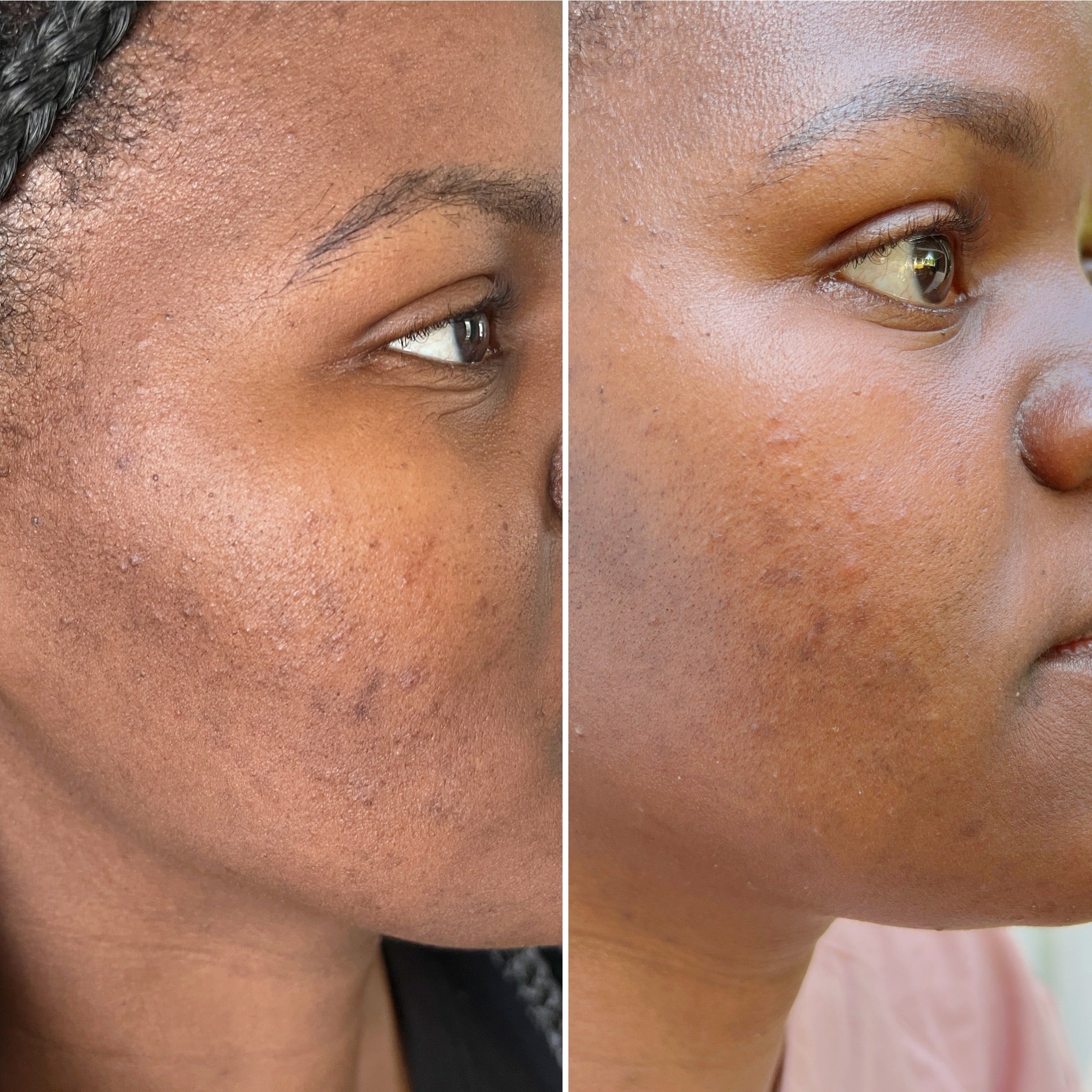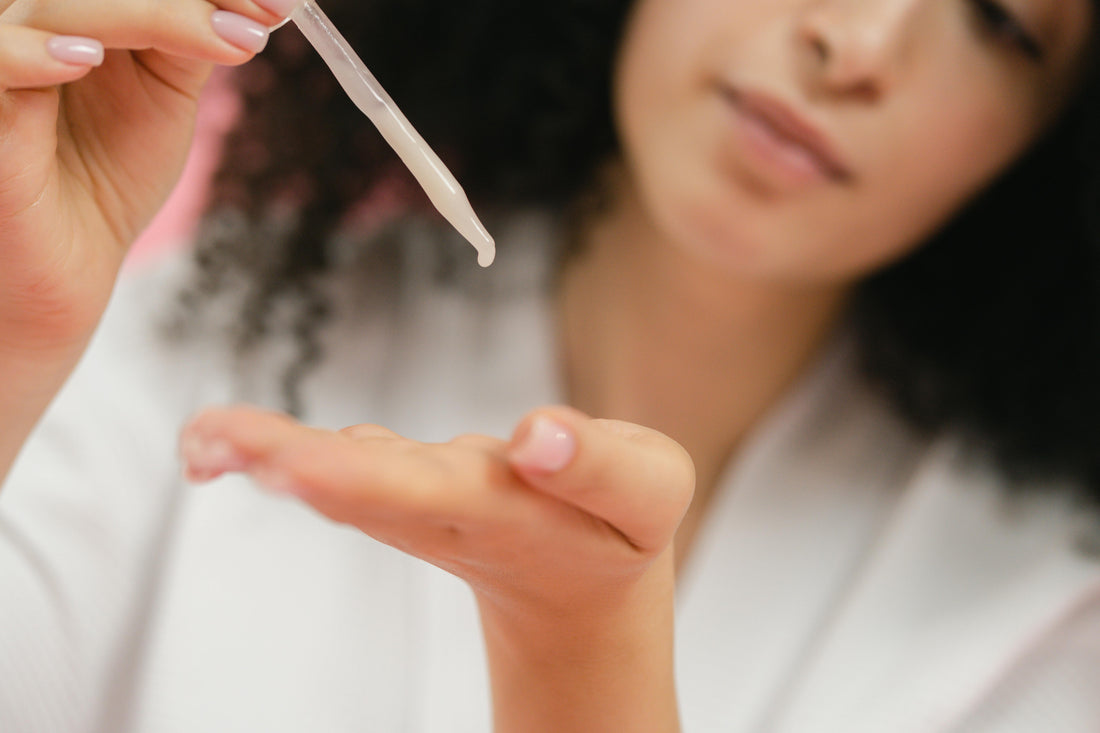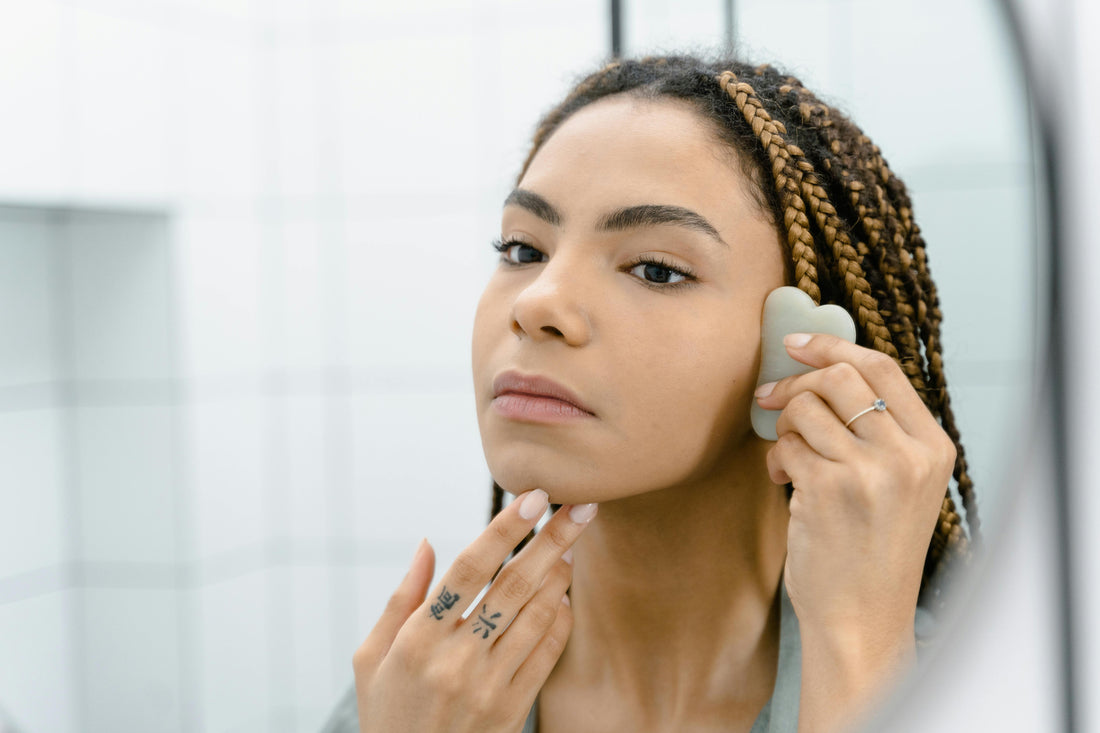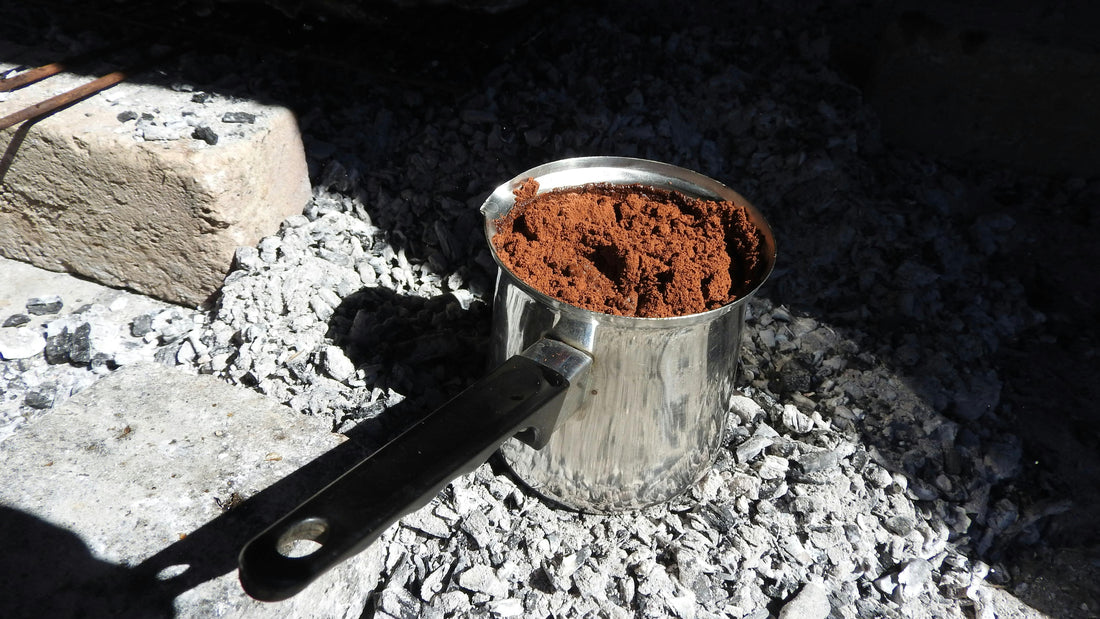If you have rough, scaly, or irritated skin, there is a huge chance it is dehydrated and just needs a little more attention.
Your skin's moisture barrier works by holding in as much moisture as possible to keep it looking healthy, plump, and hydrated. However, if this barrier is damaged, whether by external or internal triggers, your skin can't trap a lot of moisture, leaving it dry, cracked, and susceptible to more issues.
Luckily, the condition of your skin's moisture barrier is not permanent. This means it can always get better if you hydrate properly, and in this post, we will show you how.
Is your skin dry or dehydrated?
Before buying a bunch of "hydrating" products, it is important to know that there is a difference between dry skin and dehydrated skin. Dry skin is a naturally occurring genetic skin type, while dehydrated skin is caused by external factors like bad skincare habits, over-exfoliation, etc.
Dry skin may appear matte or dull sometimes, but it doesn't mean the skin is unhealthy. However, its appearance can be worsened by external factors like harsh weather, which would cause visible effects like:
- Flakiness or peeling
- Rough or scaly texture
- Itchiness
- Visible cracks or redness
This skin type has a rough texture and may often feel tight.
Dehydrated skin is caused by a lack of water in the skin's layers. It can affect any skin type, including oily or combination skin, and is often triggered by external factors such as weather changes, lifestyle habits, or skincare products. Some signs of dehydrated skin are:
- Dull complexion
- Tightness, especially after cleansing
- Fine lines that seem more pronounced (often called "dehydration lines")
- Increased sensitivity
- Oiliness (as your skin compensates for water loss)
How to know if your skin is dehydrated
You can test your skin's hydration level with a simple test. Using your thumb and index finger, pinch the part of your skin where your under-eye and cheek meet and release. Your skin will remain stuck in place after the pinch, or it will get tented for a bit and return to its normal state immediately. How fast your skin returns to normalcy is a good indicator of how hydrated it is. A well-hydrated skin is plump and will bounce back into its normal state almost immediately after a pinch.
How to hydrate skin the right way, according to experts
Contrary to common opinion, hydrating your skin goes beyond just slapping on a moisturizer. It is a combination of external and internal efforts that keeps the skin well-moisturized and hydrated. According to experts, here are some steps to hydrate the skin the right way.
Drink plenty of water.
Hydrating your skin starts from the inside. Aim to drink at least 8 glasses of water daily to maintain your skin's moisture balance. For an extra boost, include hydrating foods like watermelon, cucumber, and oranges in your diet.
Use the right moisturizer for Your skin type.
Not all moisturizers are created equal. Choose one tailored to your skin's needs:
- Dry skin: Opt for a thicker cream with ingredients like hyaluronic acid, ceramides, or glycerin.
- Oily skin: Lightweight, gel-based moisturizers are ideal to hydrate without clogging pores.
- Sensitive skin: Look for fragrance-free and hypoallergenic formulas with soothing agents like aloe vera.
Layer your skincare products strategically.
Experts recommend layering products to lock in hydration. After cleansing, apply a hydrating serum (such as one with hyaluronic acid) and follow with a moisturizer to seal in moisture. In the daytime, don't forget sunscreen to protect your skin from dehydration caused by UV rays.
Avoid overwashing your skin.
Over-cleansing can strip your skin of natural oils, leaving it dry and irritated. To preserve your skin's moisture barrier, cleanse your face twice a day with a gentle, hydrating cleanser.
Include humidifiers in your routine.
Dry air, especially during winter or in air-conditioned spaces, can dehydrate your skin. A humidifier helps maintain healthy humidity levels in your environment, ensuring your skin stays hydrated and supple.
Limit long, hot showers.
While a steamy shower feels great, prolonged exposure to hot water can strip your skin of its natural oils. Instead, use cold or lukewarm water and keep showers short to prevent excessive moisture loss.
Don't forget overnight care.
Nighttime is when your skin repairs itself. Use a nourishing overnight mask or a heavier moisturizer before bed to deeply hydrate while you sleep.
Best ingredients to hydrate skin
Here are the top expert-recommended ingredients known for their ability to lock in moisture, replenish hydration, and promote a healthy skin barrier:
- Hyaluronic Acid
Hyaluronic acid is a hydration powerhouse that can hold up to 1,000 times its weight in water. As a powerful humectant, it attracts water to the skin, boosting hydration and making it plump and smooth.
- Glycerin
It draws moisture from the environment into the skin, keeping it soft and hydrated. It is suitable for sensitive and dry skin, helping maintain hydration levels and supporting a soft, smooth texture.
- Ceramides
Ceramides are lipids that naturally occur in the skin's barrier. When applied topically, they help strengthen the skin barrier, prevent moisture loss, and soothe dry or sensitive skin. Ceramides are great for dry and sensitive skin to reduce irritation and improve bounce.
- Aloe Vera
This is a naturally-occurring plant containing vitamins and antioxidants that calm and nourish the skin. It also has healing properties that work well for irritated or sun-exposed skin.
- Squalane
Squalene is a lightweight oil derived from olives or sugarcane that mimics the skin's natural sebum. It is ideal for people with dry or combination skin as it provides long-lasting hydration without feeling greasy.
- Panthenol (Provitamin B5)
Panthenol is a humectant and emollient that attracts and holds moisture in the skin. It improves skin elasticity and supports the healing process for damaged skin. Panthenol is suitable for all skin types, including acne-prone skin.
- Lactic Acid
This is an alpha-hydroxy acid (AHA) that gently exfoliates and hydrates the skin. It removes dead skin cells to allow better absorption of other hydrating ingredients. It helps revive dull or dehydrated skin.
FAQs
How can I super hydrate my skin?
Use a hydrating serum with hyaluronic acid, followed by a rich moisturizer to lock in moisture. Drink plenty of water, use a humidifier, and avoid harsh cleansers.
What do dermatologists recommend for extremely dry skin on the body?
Dermatologists recommend thick creams or ointments with ingredients like ceramides, glycerin, or shea butter. Apply immediately after bathing, and avoid hot water.
Why is my skin so dry even when I moisturize?
Your moisturizer might not be suitable for your skin type, or you may be skipping essential steps like exfoliation or applying moisturizer on damp skin. Environmental factors or underlying conditions could also be causing dryness.
How Rebel Skincare Helps
Rebel skincare provides a range of powerful, science-backed products that tackle dehydration to reveal healthy, hydrated, and plump skin. The formulations contain hydrating powerhouse ingredients like hyaluronic acid, glycerin, aloe vera leaf juice, etc., all carefully curated to provide long-lasting hydration throughout the day.
Explore our products and begin your journey to healthy, hydrated skin today.



